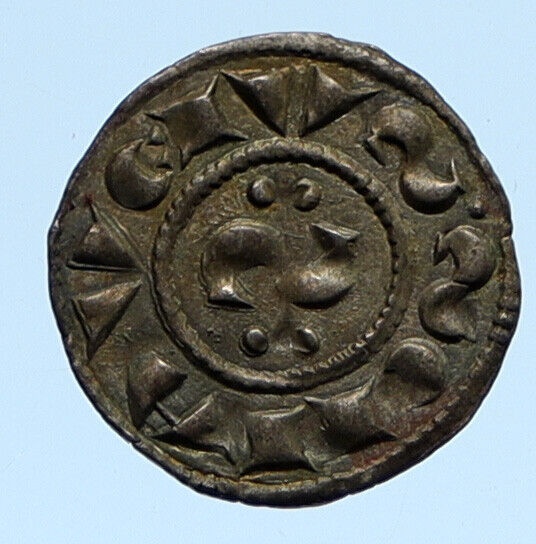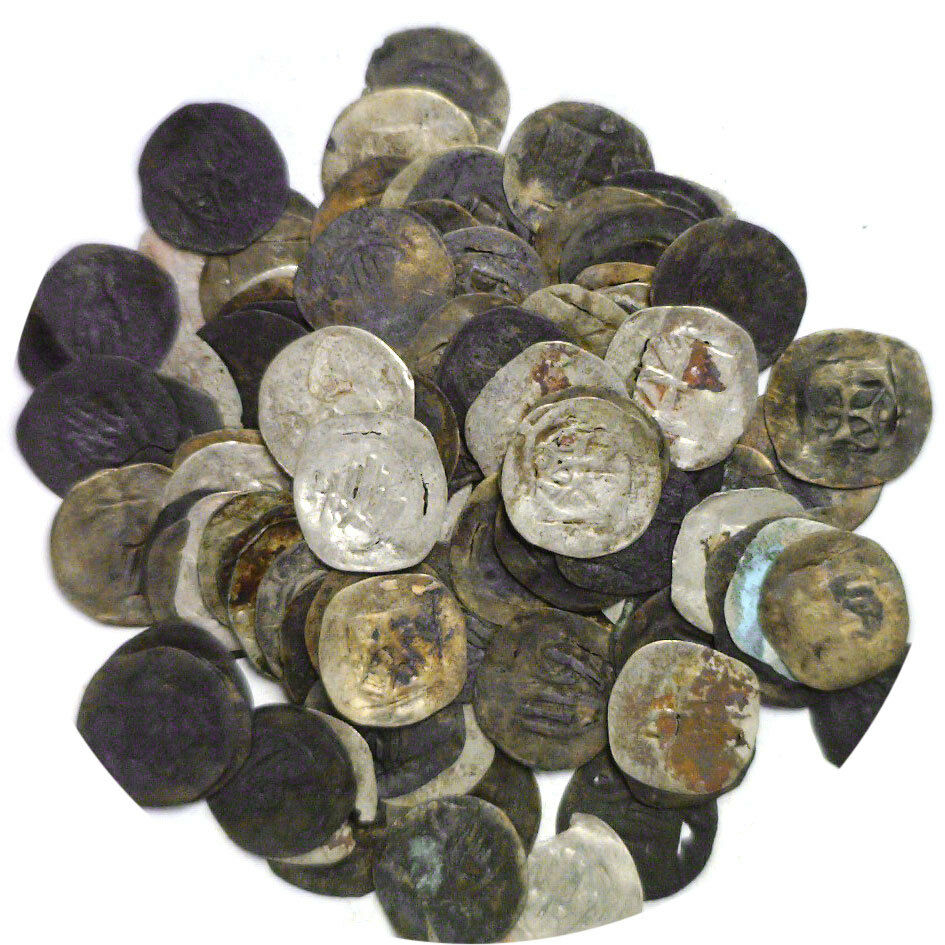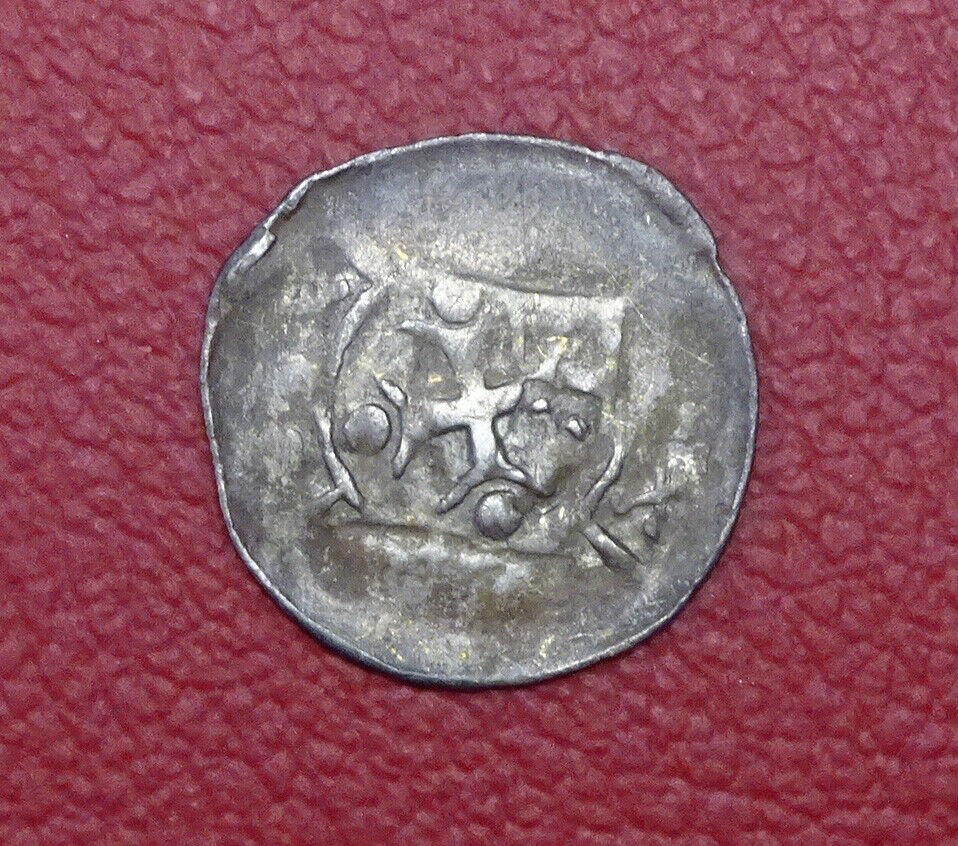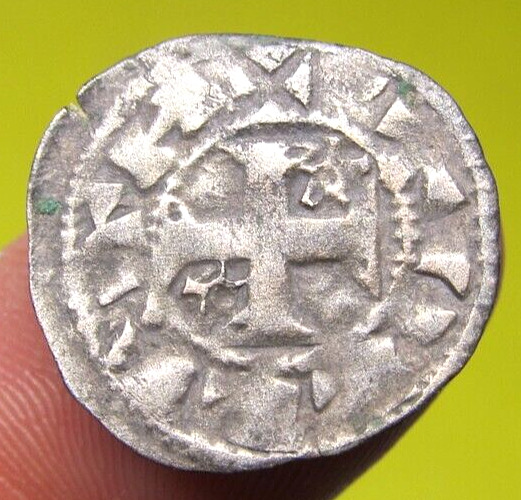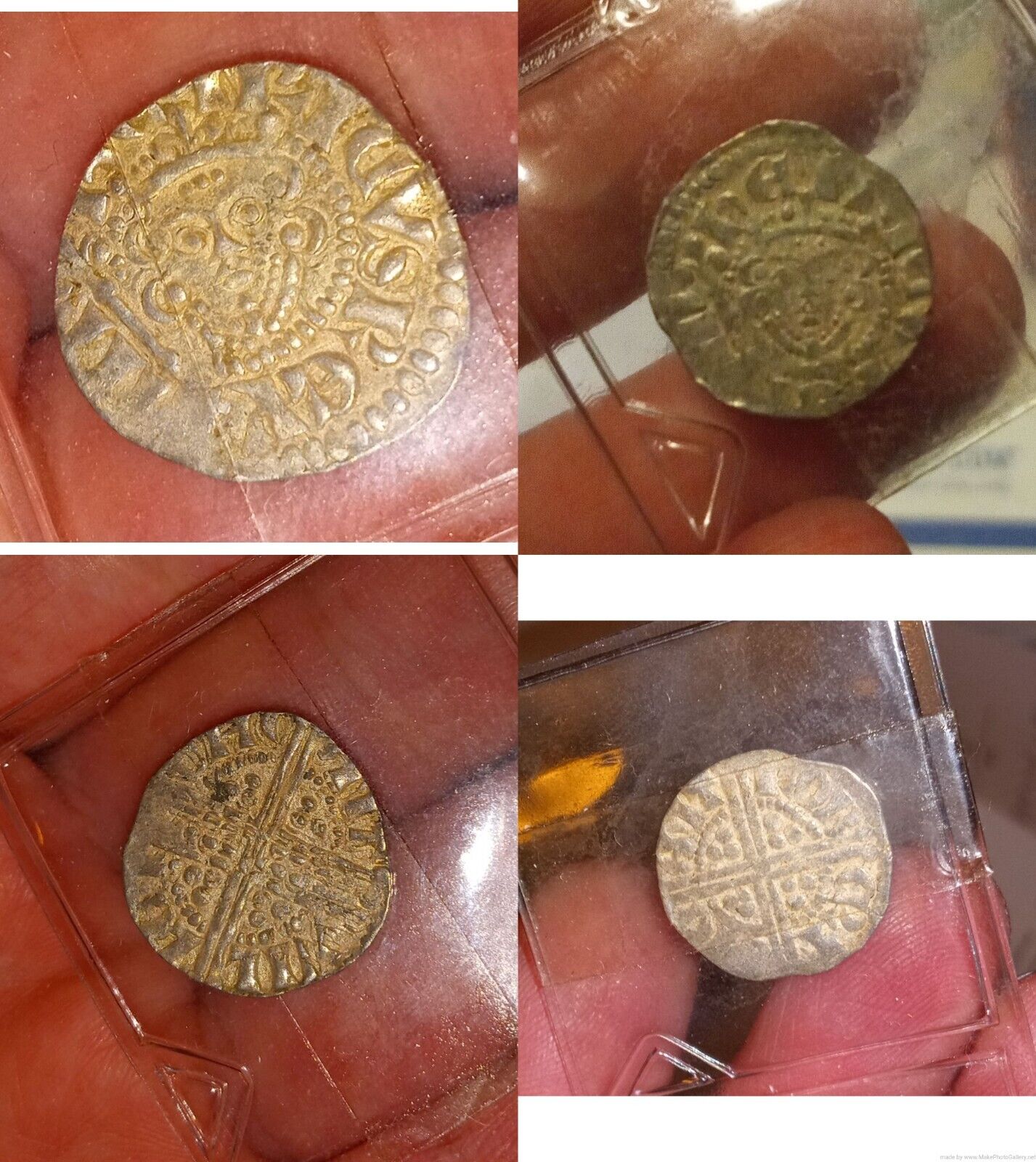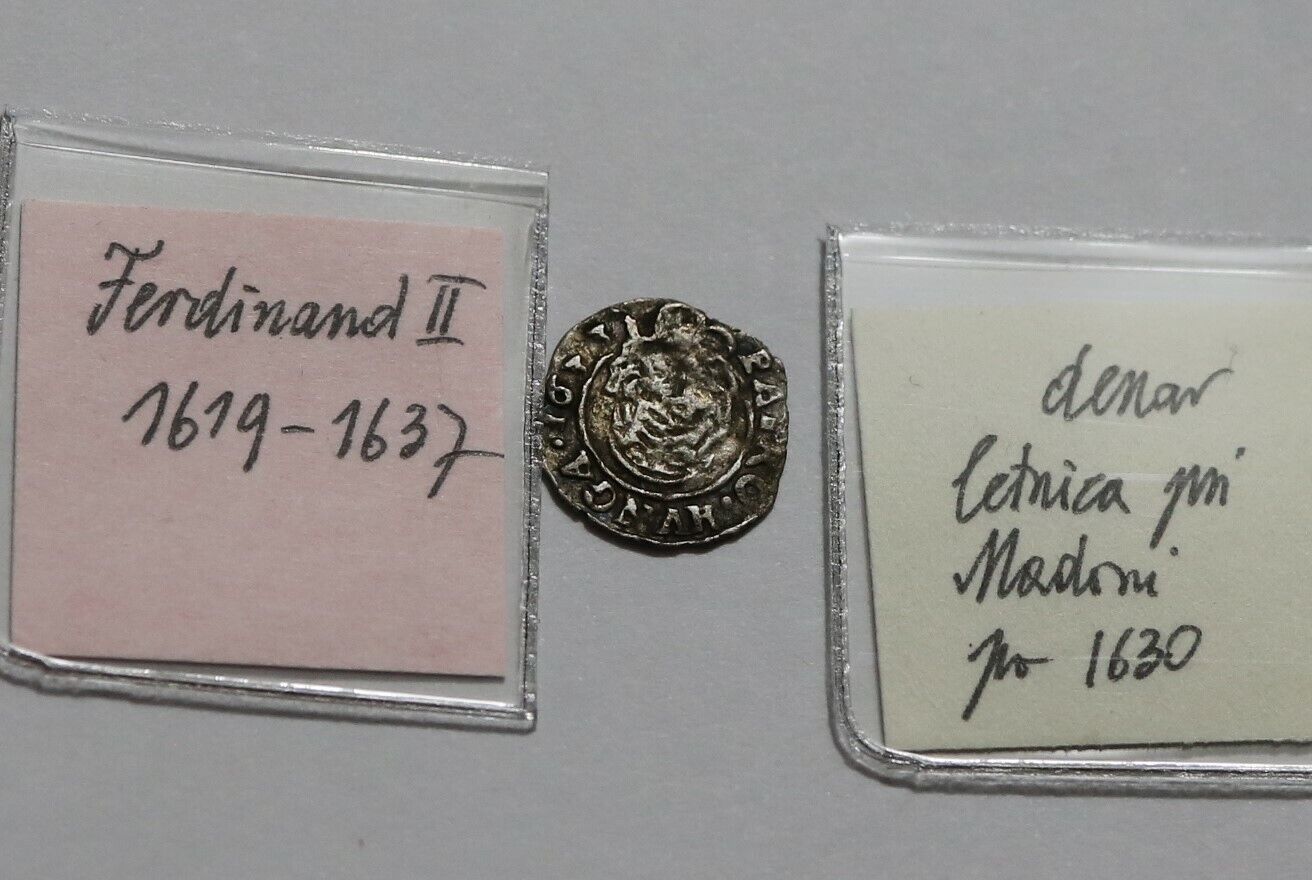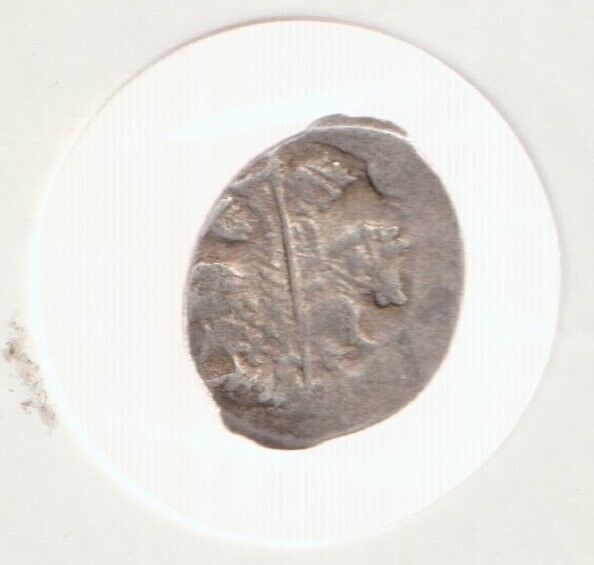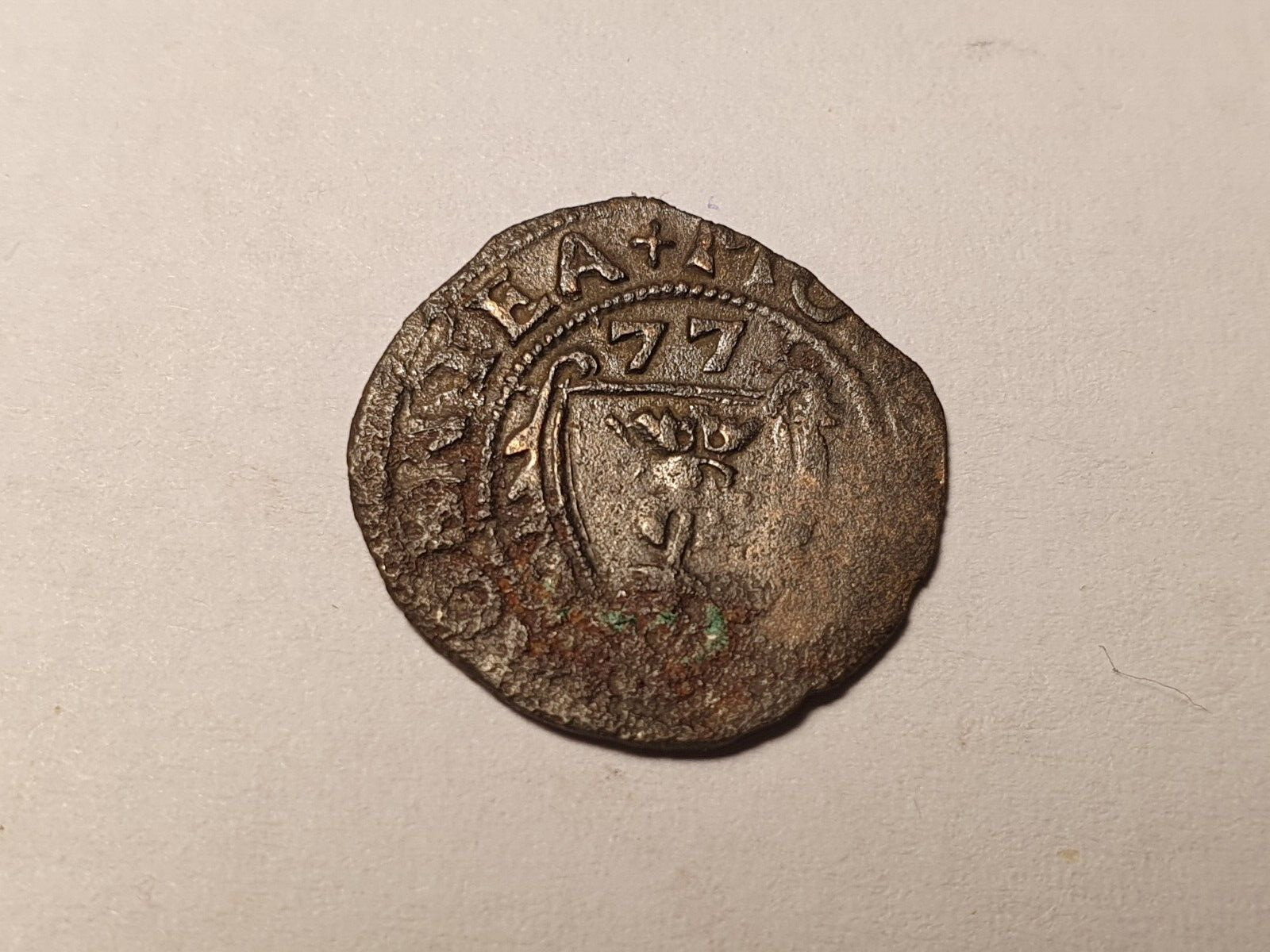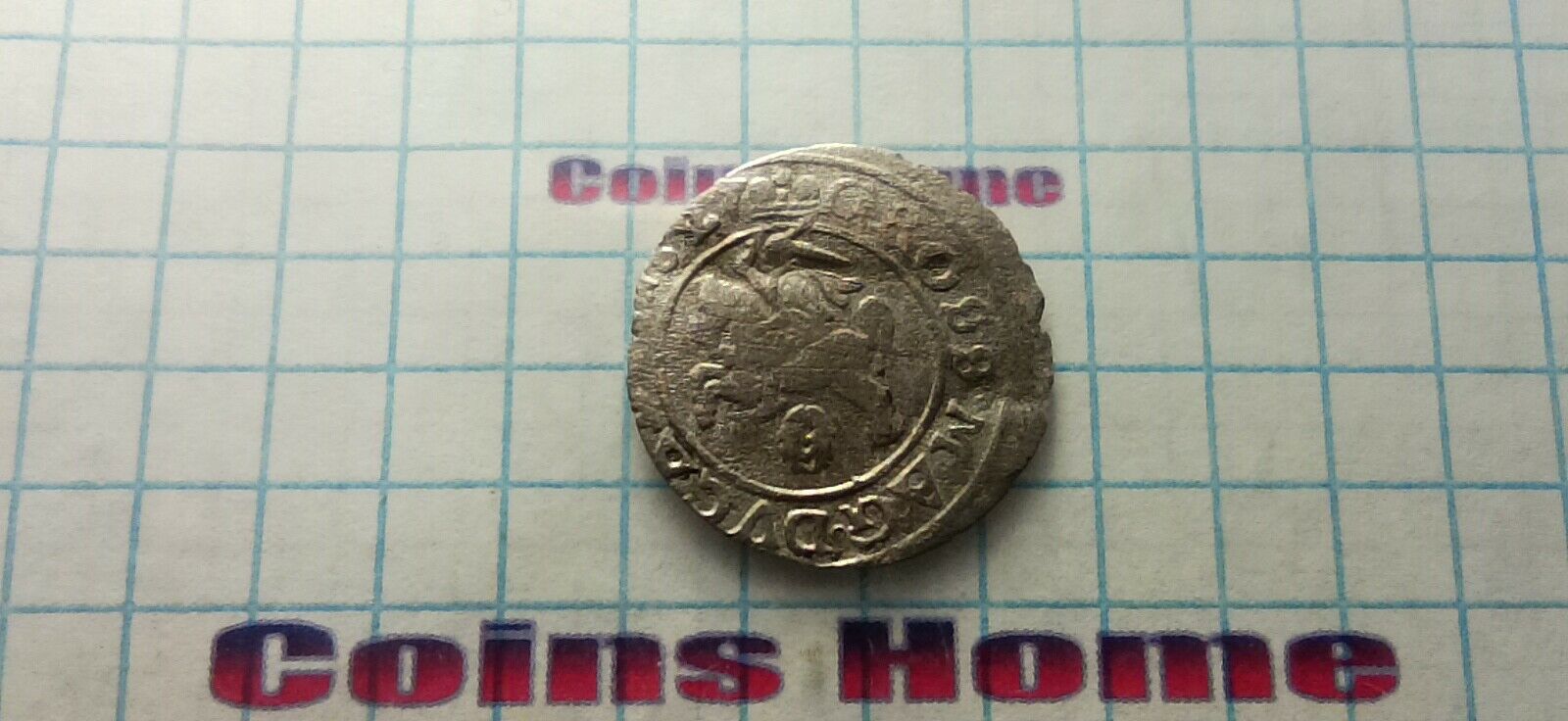-40%
12th Century Medieval ITALY SIENA City Republic Antique OLD Silver Coin i96378
$ 506.24
- Description
- Size Guide
Description
Item:i96378
Authentic Coin of:
Italy
. Siena. Republic.
Silver Denaro 16mm (0.71 grams) Struck circa 12th-14th centuries A.D.
Reference: Biaggi 2534, N# 87931
:S: EHAVEIVS, Reversed S inside beaded circle.
· ALIA ЄI ω, Lettering around cross.
You are bidding on the exact item pictured, provided with a Certificate of Authenticity and Lifetime Guarantee of Authenticity.
Siena,
in English sometimes spelled
Sienna
; Latin:
Sena Iulia
) is a city in Tuscany, Italy. It is the capital of the province of Siena.
The historic centre of Siena has been declared by UNESCO a World Heritage Site. It is one of the nation's most visited tourist attractions, with over 163,000 international arrivals in 2008. Siena is famous for its cuisine, art, museums, medieval cityscape and the Palio, a horse race held twice a year.
Siena, like other Tuscan hill towns, was first settled in the time of the Etruscans (c. 900–400 BC) when it was inhabited by a tribe called the Saina. The Etruscans were a tribe of advanced people who changed the face of central Italy through their use of irrigation to reclaim previously unfarmable land, and their custom of building their settlements in well-defended hill forts. A Roman town called
Saena Julia
was founded at the site in the time of the Emperor Augustus. Some archaeologists assert that Siena was controlled for a period by a Gaulish tribe called the Senones.
]
According to local legend, Siena was founded by Senius and Aschius, two sons of Remus and thus nephews of Romulus, after whom Rome was named. Supposedly after their father's murder by Romulus, they fled Rome, taking with them the statue of the she-wolf suckling the infants (Capitoline Wolf), thus appropriating that symbol for the town.
]
Additionally they rode white and black horses, giving rise to the
Balzana
, or coat of arms of Siena with a white band atop a dark band. Some claim the name Siena derives from Senius. Other etymologies derive the name from the Etruscan family name
Saina
, the Roman family name
Saenii
, or the Latin word
senex
"old" or its derived form
seneo
"to be old".
Siena did not prosper under Roman rule. It was not sited near any major roads and lacked opportunities for trade. Its insular status meant that Christianity did not penetrate until the 4th century AD, and it was not until the Lombards invaded Siena and the surrounding territory that it knew prosperity.
]
After the Lombard occupation, the old Roman roads of Via Aurelia and the Via Cassia passed through areas exposed to Byzantine raids, so the Lombards rerouted much of their trade between the Lombards' northern possessions and Rome along a more secure road through Siena. Siena prospered as a trading post, and the constant streams of pilgrims passing to and from Rome provided a valuable source of income in the centuries to come.
The oldest aristocratic families in Siena date their line to the Lombards' surrender in 774 to Charlemagne. At this point, the city was inundated with a swarm of Frankish overseers who married into the existing Sienese nobility and left a legacy that can be seen in the abbeys they founded throughout Sienese territory.
]
Feudal power waned, however, and by the death of Countess Matilda in 1115 the border territory of the March of Tuscany which had been under the control of her family, the Canossa, broke up into several autonomous regions. This ultimately resulted in the creation of the Republic of Siena.
The Republic existed for over four hundred years, from the 12th century until 1555. During the golden age of Siena before the Black Death in 1348, the city was home to 50,000 people.
In the Italian War of 1551–59, the republic was defeated by the rival Duchy of Florence in alliance with the Spanish crown. After 18 months of resistance, Siena surrendered to Spain on 17 April 1555, marking the end of the republic.
The new Spanish King Felipe II, owing huge sums to the Medici, ceded it (apart from a series of coastal fortresses annexed to the State of Presidi) to the Grand Duchy of Tuscany, to which it belonged until the unification of Italy in the 19th century.
A Republican government of 700 Sienese families in Montalcino resisted until 1559.
Italy
, officially the
Italian Republic
(Italian:
Repubblica Italiana
), is a unitary parliamentary republic in Europe. Italy covers an area of 301,338Â km
2
(116,347 sq mi) and has a largely temperate climate; due to its shape, it is often referred to in Italy as
lo Stivale
(the Boot). With 61 million inhabitants, it is the 4th most populous EU member state. Located in the heart of the Mediterranean Sea, Italy shares open land borders with France, Switzerland, Austria, Slovenia, San Marino and Vatican City.
Since ancient times, Greek, Etruscan, Celtic, and other cultures have thrived on the Italian Peninsula. Rome ultimately emerged as the dominant power, conquering much of the ancient world and becoming the leading cultural, political, and religious centre of Western civilisation. During the Dark Ages, the region suffered sociopolitical collapse amid calamitous barbarian invasions, but by the 11th century, numerous Italian city-states rose to great prosperity through shipping, commerce and banking, and even laid the groundwork for capitalism. The Renaissance led to a flourishing of Italian culture, producing famous scholars, artists, and polymaths such as Leonardo da Vinci, Galileo, Michelangelo and Machiavelli. Italian explorers such as Marco Polo, Christopher Columbus, Amerigo Vespucci, and Giovanni da Verrazzano discovered new routes to the Far East and the New World, helping to usher in the European Age of Discovery. Nevertheless, Italy remained politically fragmented and fell prey to European powers such as France, Spain, and later Austria, subsequently entering a long period of decline that lasted until the mid-19th century.
After various unsuccessful attempts, the second and the third wars for Italian independence resulted in the eventual unification of most of present-day Italy by 1866. From the late 19th century to the early 20th century, the new Kingdom of Italy rapidly industrialised and acquired a colonial empire, becoming a great power. However, southern and rural areas of the country remained largely excluded from industrialisation, fuelling a large and influential diaspora. Despite being one of the main victors in World War I, Italy entered a period of economic crisis and social turmoil, leading the way to the rise of a Fascist dictatorship in 1922. The subsequent participation in World War II on the Axis side ended in military defeat, economic destruction and civil war. In the years that followed, Italy abolished the monarchy, reinstated democracy, and enjoyed a prolonged economic boom, thus becoming one of the world's most developed nations.
Italy has the third largest economy in the Eurozone and the eighth largest economy in the world. It has a very high level of human development and enjoys the highest life expectancy in the EU. Italy plays a prominent role in global military, cultural and diplomatic affairs and is also considered to be a major regional power in Europe. Italy is a founding and leading member of the European Union and the member of numerous international institutions, including the UN, NATO, the OECD, the OSCE, the WTO, the G7/G8, G20, the Union for the Mediterranean, the Council of Europe, Uniting for Consensus, and many more. As a reflection of its vast cultural wealth, Italy is home to 51 World Heritage Sites, the most in the world, and is one of the most visited countries.
Frequently Asked Questions
Mr. Ilya Zlobin
, world-renowned expert numismatist, enthusiast, author and dealer in authentic ancient Greek, ancient Roman, ancient Byzantine, world coins & more.
Who am I dealing with?
You are dealing with Ilya Zlobin, ancient coin expert, enthusiast, author and dealer with an online store having a selection of over 15,000 items with great positive feedback from verified buyers and over 10 years experience dealing with over 57,000 ancient and world coins and artifacts. Ilya Zlobin is an independent individual who has a passion for coin collecting, research and understanding the importance of the historical context and significance all coins and objects represent. Most others are only concerned with selling you, Ilya Zlobin is most interested in educating you on the subject, and providing the largest selection, most professional presentation and service for the best long-term value for collectors worldwide creating returning patrons sharing in the passion of ancient and world coin collecting for a lifetime.
How long until my order is shipped?
Orders are shipped by the next business day (after receipt of payment) most of the time.
How will I know when the order was shipped?
After your order has shipped, you will be left positive feedback, and that date could be used as a basis of estimating an arrival date. Any tracking number would be found under your 'Purchase history' tab.
USPS First Class mail takes about 3-5 business days to arrive in the U.S. International shipping times cannot be estimated as they vary from country to country.
Standard international mail to many countries
does not
include a tracking number, and can also be slow sometimes.
For a tracking number and signature confirmation, you may want to do Express Mail International Shipping, which costs more, however, is the fastest and most secure. Additionally you may be able to receive your order in as little as 3-5 business days using this method. For Express Mail International, it may be possible to place up to 10-15 items in one package (for the one shipping cost) as it is flat rate envelope, which may be the most cost-effective, secure and fastest way to receive items internationally. Send me a message about this and I can update your invoice should you want this method.
Getting your order to you, quickly and securely is a top priority and is taken seriously here.
Great care is taken in packaging and mailing every item securely and quickly.
Please be aware, I cannot take responsibility for any postal service delivery delays, especially for international packages as it may happen in rare instances.
What is a certificate of authenticity and what guarantees do you give that the item is authentic?
Each of the items sold here, is provided with a Certificate of Authenticity, and a Lifetime Guarantee of Authenticity, issued by a world-renowned numismatic and antique expert that has identified over 57,000 ancient coins and has provided them with the same guarantee. You will be very happy with what you get with the COA; a professional presentation of the coin, with all of the relevant information and a picture of the coin you saw in the listing. Additionally, the coin is inside it's own protective coin flip (holder), with a 2x2 inch description of the coin matching the individual number on the COA.
On the free-market such a presentation alone, can be considered a - value all in itself, and it comes standard with your purchases from me,
FREE.
With every purchase, you are leveraging my many years of experience to get a more complete context and understanding of the piece of history you are getting. Whether your goal is to collect or give the item as a gift, coins presented like this could be more prized and valued higher than items that were not given such care and attention to.
Buy a coin today and own a piece of history, guaranteed.
Is there a money back guarantee?
I offer a 30 day unconditional money back guarantee. I stand behind my coins and would be willing to exchange your order for either store credit towards other coins, or refund, minus shipping expenses, within 30 days from the receipt of your order. My goal is to have the returning customers for a lifetime, and I am so sure in my coins, their authenticity, numismatic value and beauty, I can offer such a guarantee.
When should I leave feedback?
Once you receive your order, please leave a positive feedback. Please don't leave any negative feedbacks, as it happens sometimes that people rush to leave feedback before letting sufficient time for their order to arrive. Also, if you sent an email, make sure to check for my reply in your messages before claiming that you didn't receive a response. The matter of fact is that any issues can be resolved, as reputation is most important to me. My goal is to provide superior products and quality of service.
How and where do I learn more about collecting ancient coins?
Visit the "
Guide on How to Use My Store
" for on an overview about using my store, with additional information and links to all other parts of my store which may include educational information on topics you are looking for.
